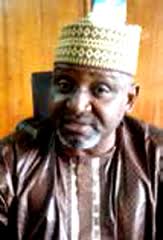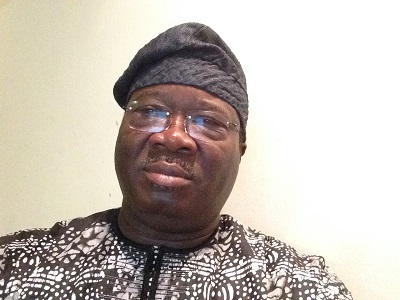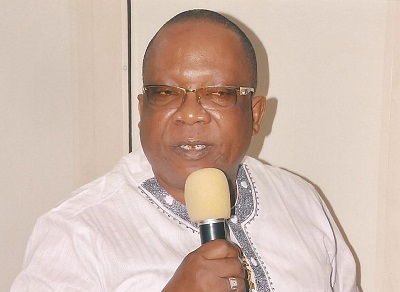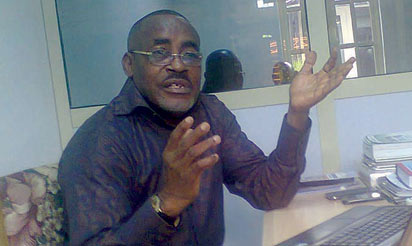Why NIWA’s Revenue Increased In 2015 – Sambo

Engr. Muazu Sambo is the Area Manager, Lagos Zone of the Nigeria Inland Waterways Authority (NIWA); in this chat with Segun Oladipupo, he divulges some of the achievements of the Authority in the first quarter of 2015 and how the agency was able to record 70 percent of the total revenue of last year within the first quarter of the year. He makes known some of the plans of the agency to open more routes in the areas they have not been able to cover in the second quarter of the year. He also speaks about how the recent traffic around Lagos especially the port access roads has helped to boost the income of the government agency. Enjoy the interview as he also talks about other germane issues in the maritime sector.
What are the major achievements of NIWA in the first quarter of 2015?
One of the major achievements we have recorded in the first quarter of the year is the public private partnership that we have put in place to facilitate easy movement of water passengers plying the inland waterways of the state. You will recall last year, during a brief , I talked about the need for operators to have or own facilities (boats) of international standards and the arrival of some investors coming in with sophisticated ferries to do business in Lagos State. These kind of boats meet up with international best practices. Again, you will recall that there are several incidents of death that were recorded on our waters and decided to carry out intensive research and found out that one of the critical reasons behind the mishaps is lack of deploying suitable boats in place and towards the beginning of this year 2015, we were able to identify a certain company called Seacoach Group; who has brought in nine boats into Lagos. They acquired a terminal in Ikorodu and NIWA was able to provide a space here for them at CMS , Marina jetty for them. Though its a floating jetty, we are able to provide another jetty for them at Victoria Island in order to move passengers from there to Ikorodu.
In totality we have three jetty for that company and also the company also ferry passengers from here to Apapa. The ferries in question meet international standards, they are comfortable for passengers even though they are smaller in size when compared to the other operators but the truth is they cannot sink because of the mode of construction, they will always float and from what we have witnessed, passengers have increased which I will say is a major achievement for the first quarter of the year because investors are coming to do business in our waterways and more will come. Remember that all these will lead to job creation and even the revenue for government will increase as well.
There are complaints from water transport passengers that the fare is on the high side compared to other means of transportation; what is NIWA doing to salvage the situation?
This is one question that can best be answered by the operators because they know the cost of providing services to the passengers. They know the cost of petroleum products, they also know the cost of engines because each of the boats has a minimum of two engines, it has a tank that takes Prime Motor Spirit(PMS) and you will also agree with me that there are fuel scarcity in the country at the moment and the operators are there doing their businesses despite the situation. How they even get fuel to manage the boats alone is an herculean task but I will say it is an achievement as far as I am concerned because they are able to assist people to move from one point to another through water transport is an achievement. Whether it is expensive or not, I think the operators are the one that will tell you if it is expensive or not. To run a single boat alone costs a lot and from all I know from the discussions I had with some of the existing operators even before Seacoach, they barely make profits at the end of the day.
Therefore, the fare is a function of the cost of providing that service. You have to look at the number of people employed , who are been paid salary and wages, you have to look at the cost of acquiring these boats and even most of them are even through bank loans at an exorbitant interest rate. Again the cost of fuel and maintenance of the crafts. Our lagoons are very dirty and when the engines move on our waters they pick a lot of debris and in the process worn out in time when compared to a situation whereby the waters are cleaner. This also increases the cost of maintenance for the operators. Maintenance are done normally over the weekends because they don’t operate on Saturdays and Sundays. At the end of the day when you add all this cost, the operator may determine the rate he will charge the passengers in order to meet these aforementioned costs, bring them into margin and decide what the fare will be because it is not a charitable organisation.
What is NIWA doing to clear the waterways of the debris on the water?
It is not the responsibility of NIWA to make clear debris from the water but let me agree with you but without conceding that NIWA is responsible for ensuring that the waters are clean but until the attitude of our people change such cannot be achieved. Imagine people pouring debris and all sorts of dirts into the water and you are not there to stop them. You know how debris moves, it can move from Ikorodu to Lagos so, if people at Ikorodu or Third Mainland Bridge pour dirt inside the water and you are here in Marina and before you know it, the dirt are here.
So, it is a cultural thing, you see people standing by the sea peeing inside the lagoon, dumping refuse inside the lagoon. Some of these things are actually supposed to be controlled by government under environmental laws but the people are not yielding to the laws. No matter the laws you have, if people do not change their habits, if peoples’ orientation is not geared towards having a clean environment, there is little we can achieve.
This is a clarion call for all of us irrespective of your status to ensure that we work towards having a clean environment and clean water.
Why does NIWA not put up an enlightenment campaign for the passengers?
It is not the passengers that are responsible for the dirt in the lagoon. It is the people that live elsewhere around the lagoon or scattered around that bring the dirt and hurl them into the lagoon and there is no regulatory agency there to stop them. The problem is the recalcitrant attitude among Nigerians.
Let me give you a typical example; in Lagos, every last Saturday of the month is slated for environmental sanitation; how many people actually observe it? People just stay in their houses for three hours and after that, they go out. So, the law is there but what can you do when people decide not to conform and when they decide not to be responsible?
It is a Nigeria problem but when Nigerians go abroad, they queue better than any other tribe or nationality but when you tell them to queue here, they say no; they shout; they will rather create chaos. In spite of all the efforts made to make sure that people cannot just board here without queuing, the other day, I came here and I was addressing them and one guy was just shouting and saying all sorts of things. Though there was congestion, what you need to do is to talk to the appropriate authority instead of just shouting unnecessarily.
What are your agenda for the second quarter?
Agenda setting is always there; we are working hard to surpass the record of the first quarter. We are also working to see more investors coming to invest in terms of providing more boats, cover more locations within Lagos as you know very well that the areas already covered are CMS, Ikorodu and Victoria Island. There are whole lots of people coming from Satellite Town into Lagos, Apapa, Coconut, Mile 2 and those areas are not covered yet and it is our dream that those areas will soon be covered. They can only be covered when we have more boats. So, we are looking at achieving that in this quarter and we are also looking forward to the incoming administration of Buhari that he gives more attention to the maritime sector of the economy because the maritime has tremendous potentials especially now that there is dwindling oil revenue. If the resources in the maritime are tapped, a lot of revenue can be generated from the sector.







